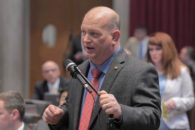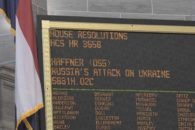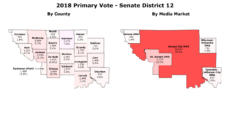A recent order from the Federal Energy Regulation Commission (FERC) may mean the end of a rule that has governed Missouri’s utility companies for more than a decade.
FERC issued an order in September removing language restricting distributed energy resource (DER) aggregators from participating in service markets operated by Regional Transmission Organizations (RTOs) and Independent System Operators (ISO) — both of which handle electric grid operations. DER aggregators collect and condense data regarding “any resource located on the distribution system, any subsystem thereof or behind a customer meter” and assist systems with planning and resource management.
The barrier stems from FERC rules designed for older equipment, and the commission has worked since 2018 to update its regulations to keep up with emerging technology such as new energy storage devices and an increased emphasis on renewable energy systems. In removing these barriers, FERC seeks to “usher in the electric grid of the future.”
The new order requires RTOs and ISOs to develop compliance plans outlining how they will handle DER interconnections, information and data sharing, and changes to state and local policies. While the rule change is a federal one, state regulations — including those in Missouri — could see changes as well if regulatory bodies deem it necessary.
The program includes an opt-out provision for state agencies, allowing RTOs and ISOs to accept bids from aggregators only if relevant regulatory agencies allow them to participate under FERC’s rule. RTOs, such as the Southwest Power Pool (SPP) that runs through Missouri, are multi-state entities, meaning different portions of the line could fall under different state policies.
Missouri’s Public Service Commission (PSC), meanwhile, has a temporary rule on the books prohibiting the use of aggregators of retail customers (ARC), the state’s iteration of DER aggregators, for commercial and industrial consumers. The order was put in place in 2010 in order to comply with FERC’s prohibition, but may finally be revoked or altered in light of the latest federal developments.
The PSC opened a working case on the matter this week, seeking feedback from stakeholders on the temporary ban. A workshop was held on the issue in June with commissioners and Staff presenting the new FERC order and possible next steps before energy providers.
“Based on comments made at the workshop and to ensure dialog continues, this order is looking for feedback from stakeholders on the potential removal of the commission’s restrictions,” PSC Chairman Ryan Silvey said.
Commissioners said the order predated all of their involvement with the PSC, with Commissioner Scott Rupp quipping, “nothing is more long-term than a temporary government program.”
Stakeholders will be asked whether Missouri should modify its prohibition, what impact changes might have on business models and companies’ compliance with the Missouri Energy Efficiency Investment Act (MEEIA), impacts on noncommercial customers, and whether a change is even necessary. Comments are due by Sept. 1, with a report from Staff expected one month later.

Cameron Gerber studied journalism at Lincoln University. Prior to Lincoln, he earned an associate’s degree from State Fair Community College. Cameron is a native of Eldon, Missouri.
Contact Cameron at cameron@themissouritimes.com.


























